Duration and study methods
Start dates
Qualification
Credits
Location
Domestic fees
International fees
NZD $13,000 (approx.) per 60 credits
Free* study
Programme highlights
Are you ready to make the next move in your career?
Get the skills you need to make the move into a supervisory or leadership role. This programme is delivered fully online through synchronous classes, tutorials and our learning management site Canvas. You will need to have access to a digital device and a stable internet connection for the best participation experience in this programme.
This course is right for you if you’re looking to advance your career in a range of workplaces including:
- Private supervision practice
- Social services and social work
- Counselling
- Community-based work
- Education
- Health
- Mental Health.
If you are Māori or Pasifika, find out how you could be supported on your MIT journey with Te Ara Oranga.
Entry requirements
Applicants must meet the following entry criteria:
Have a qualification of an appropriate Bachelor’s Degree in a human services (and/or other people related profession) with at least two years of practice experience
OR
Demonstrate equivalent practical, or professional experience in a practice or practices.
AND
Complete and sign a personal safety disclosure form
AND
Must have access to a digital device and a stable internet connection.
English language requirements
Applicants must have sufficient competence in the English language to undertake this programme, which is taught and assessed in English.
International students English language entry requirements
For the minimum English language requirements refer to the requirements set out in the NZQF Programme and Accreditation Rules https://www.nzqa.govt.nz/providers-partners/qa-system-for-teos/english-international-students/
Give yourself credit with Recognition of Prior Learning (RPL)
Did you know you can use the knowledge and experience you already have to your advantage?
Your previous work experience and on-the-job skills, volunteering, professional development, and other providers’ qualifications can be recognised as prior learning, matched against credits in our courses, and put towards your qualification – potentially saving you money and possibly helping you to complete your qualification faster Learn more.
Programme structure
You will need to complete the below four courses (60 credits):
You will be able to build a solid theoretical framework to enhance existing practice by weaving a cross-cultural supervisory understanding to their work.
You will build research capacity, which will enhance existing practice by weaving a cross-cultural research-based component into their supervision framework.
You will apply the ongoing developmental weaving of cross-cultural supervisory components into their supervisory practice framework.
Do you want to study a single course, without enrolling into the full programme?
Courses within some of our programmes may be offered as an individual Certificate of Proficiency (COP). Programme entry requirements and course fees apply. For more information, please speak to our friendly Ask Me! team.
Further training or study
Enhance supervisor skills and theoretic base including cross culture perspectives.
Career opportunities
Develop career options as a qualified supervisor or leader. For potential salaries visit careers.govt.nz.
See why more people choose Social Work at MIT

MIT is the quality choice. Study social work and graduate work-ready.
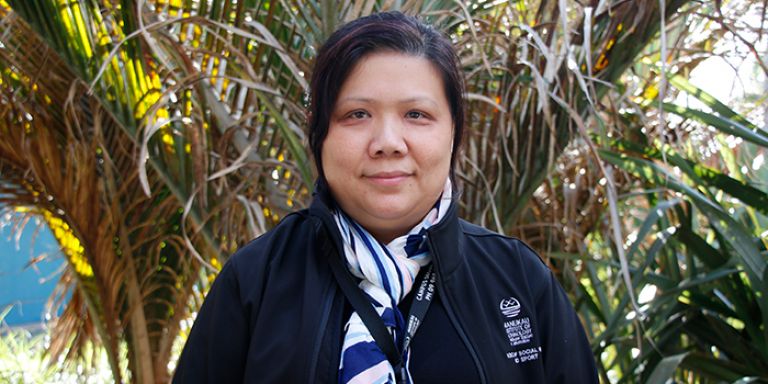
“Social work is suitable for people who have a passion to help people.”

“The social work degree programme is suitable for people who have a passion to help people. It doesn’t really matter what your background is, it doesn’t matter what experiences you have had. It’s about whether you are committed to helping your community and families. Your experience and your backgrounds – they do not define your future. As long as you are committed, and you have the passion then the degree is for you.
In social work, we focus on people, and we focus on relationships. So, we often have events and activities, and we mix year one, year two, year three and year four, in together.
As a social worker, we have to be prepared that the day will be busy. Often, we can’t really go with what we planned for, and we have to be very adaptable, and accept changes.
After our students finish the degree, they can work in any government agency, hospitals, schools, and non-governmental organisations (NGOs) or pursue further studies.
Study social work at MIT.”
Melanie Wong
MIT senior lecturer

“It’s very practical at MIT and that’s what I love about it.”

“It’s very practical at MIT and that’s what I love about it. Learning is very engaging because we’re always very involved, it was very hands-on. What’s being taught to you is exactly what you need when you go out into the world when you get that job.
From the beginning, you’re in a position to get to know a lot of interesting people and form relationships with not only the students but with the lecturers.
I wanted to actually do something, not just be in an office. Now I can do something good for the community, helping people make the most of their lives. Helping them help themselves I love that.
My advice is don’t be afraid, just do it.”
Liam Dades
MIT graduate

“Make a change to someone else’s life.”

“I chose social work as kids in my family were placed in my care by Oranga Tamariki so that encouraged me to step up, make a change to someone else’s life. My learning at MIT is absolutely fantastic, it’s giving me tools to go out and find the job. In my student journey, I’ve enjoyed everything, assessment after assessment.
I enjoy being together with other students, also the learning support centre helps us so much, especially when it comes to assessments. I get help and any kind of support that I need from MIT.
My advice to someone considering social work is if you want to do it, just go for it. It’s very challenging but those challenges make you want to keep on going. For me, I don’t want it to end, I want to keep on going. I really enjoy it. I would like to say I have enjoyed every single thing on my journey at MIT.”
Ana Tovo Mafilao
MIT student

“If I don’t do it now, I’ll never do it.”

“I’ve always had the heart to make a difference in the community. I am a returning learner, which was a challenge I overcame before I started studying this degree. Having to be back in student life, and having no money, but it’s like, if I don’t do it now, I’ll never do it.
I quite enjoy the fact that MIT has an online study education option and the opportunity to come on campus. Everyone is really down to earth. The lecturers really want to get to know you and help you out on your journey at MIT. What I enjoyed in my student journey is the fact that it’s closer to home for me and the environment. It’s a very diverse institute.”
Peter Lafo
MIT student

“I’ll be the first one to get a degree in my family.”

“I want to make my family proud of me because I’ll be the first one to get a degree in my family. I chose this subject because in my culture I saw children being abused.
I had my own children, so I wanted to help my own, especially in my community. I’ve been the class rep for year 3 and I’m the first Island student to be class rep for our class.
Being with different cultures has made me proud of my culture. When I see MIT, it’s not only one culture but different cultures – but we’re all like one family.”
Miliano Peti
MIT student

“You’re never too old, you won’t regret it. You’ll enjoy studying with MIT.”
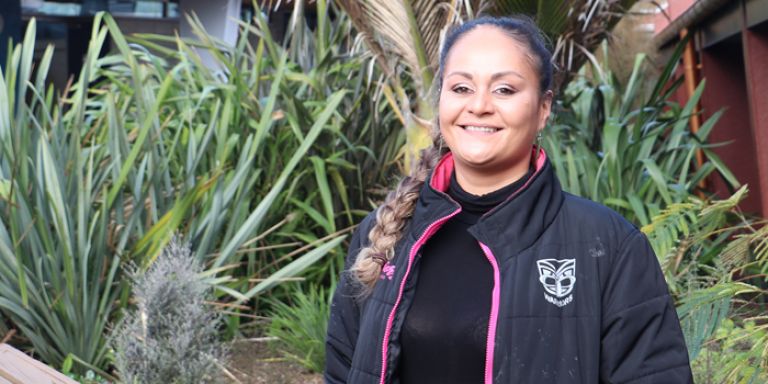
“I chose social work because I want to contribute to my community. I would really like to help families out of struggling situations that they may be in.
At MIT everything they teach us is really hands-on. We learn how to apply the theory and the practice within a real-life environment when we go out and do community work. It’s also a friendly environment. They treat everybody as equal, you’re not judged in any way. They just really, really make you feel like you’re somebody.
My advice is to go for it. You don’t want to get to an age when you’re looking back thinking I should have just done it when I was younger. Just go ahead and do it. You’re never too old. You won’t regret it, you’ll enjoy studying at MIT. We’re studying with diverse people from different ethnic backgrounds. They have quite a diverse culture here at MIT. You meet people from all different backgrounds. You’re able to develop different perspectives and I think that’s really important when you go out into the real world.”
Lisa Ratahi
MIT student

“I enjoyed every moment at MIT being able to work with different cultures.”

“I enjoyed every moment at MIT being able to work with different cultures.
It’s a huge learning experience. I encourage others to join MIT, they not only help you with your study but also help you to find a job after.”
Meliame Opeti Fifita
MIT graduate
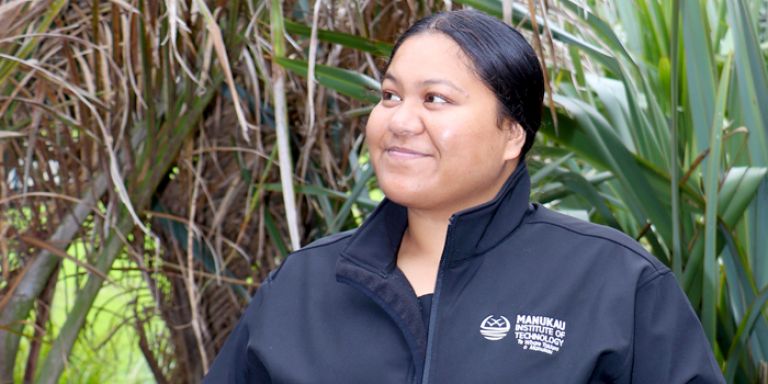
“MIT brought me out of my comfort zone.”

“I chose social work because I want to give back within our community and help the youth, the children, the tamariki. What I have enjoyed most about being at MIT is the environment. I didn’t have any confidence but coming to MIT brought me out of my comfort zone. My dream job would be working with children in a hospital.”
Marie Hilikehetute
MIT student

“Hands-on learning has improved my growth and development as a person.”

“I chose social work because I want to see positive changes within our communities and our Pasifika youth. What I enjoy most is MIT is local. We literally only live a couple of roads down.
MIT’s hands-on learning has improved my overall growth and development as a person because I learn better hands-on, I don’t learn from a book. The environment itself has a huge impact on our learning, just seeing it every day is what motivates us to actually do better for ourselves and our family.”
Sheridan Tohiniu
MIT student

“For me, the goal was to have a career and not a job.”

“The uniqueness of MIT is being diverse, it is not just one culture, we learn from other people, and we learn from ourselves. What I enjoyed most was finding and creating good friendships. I love how the teachers are as well.
Being a teen Mum, you don’t know what you want to do, and sometimes being a benefit statistic hurts. For me, the goal was to have a career and not a job. I came into social work to get that career. I’m in my dream job now because of social work. I am working at an education centre, working with young mums and helping with their social needs like getting them houses, getting them on the benefit if they need a benefit, and helping where I can.
Don’t think about it. Just do it. Honestly, you won’t regret it.”
Davinia Waite
MIT student

“My lecturers have helped and motivated me to complete my degree.”
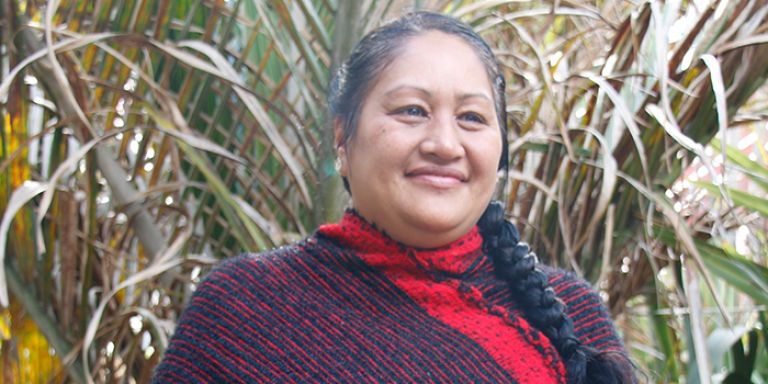
“I’ve always wanted to work in the areas of social justice, diversity and human rights.
I highly recommend Manukau Institute of Technology to anyone who wants to begin their social work journey. You will experience social work theory, proficiency and skills, and you get the opportunity to go out into placement.
My lecturers are open, honest and transparent, and they have helped and motivated me to complete my degree. We are like one big family.
Everything about MIT is unique; the people, the friendliness, the helpfulness, I can’t say enough about the Institute. They’ve bent over backwards to help me, and I’ve watched them help other students too. I highly recommend you come and study here.
Come and do the social work degree, you won’t regret it. This will actually be the kind of job where you will love getting up in the morning to come to work.”
Melanie Peakman
MIT student

“There are some journeys we need to walk on our own, but it is only to contribute to a bigger and wider picture.”

“Before studying the Bachelor of Applied Social Work, I was working full-time as a chef after completing my level 5 diploma in cookery at MIT.
I chose social work at MIT to help others to help themselves and to further my skills in dealing with relationships and learning more about Te Ao Māori. When I started the degree, my heart was for at-risk youth and now it’s to see and build thriving communities.
MIT is very diverse and has a lot of respect for other cultures. We all came from different backgrounds, learning the same thing to help us understand each other better.
It’s also unique through the fact that the lecturers are very supportive, and we had that relationship throughout the 4 years of study. Also, the level of connection between the kaiako and the tauira made the studies a lot easier knowing that they were there to help.
Covid-19 was the biggest challenge I had to face during my time of study. Being isolated and away from people face-to-face was a hard bullet to bite. Support and constant communication from lecturers and always being updated on any matters that were important, especially during the pandemic, helped me to succeed.
No one in my family has a bachelor’s degree, so being the first to complete one is a massive achievement. My qualification has helped me to get recognised and registered so that I can carry on with my mahi as a social worker.
My advice to anyone wanting to study social work at MIT is ‘he waka eke noa’ – we are all in this canoe together. Those you start with, are those you finish with. But no matter the journey people will fall off the waka. You must embrace their decisions and support them as they take on a new journey whilst you carry on your own journey.”
Bonny Alaia
MIT graduate
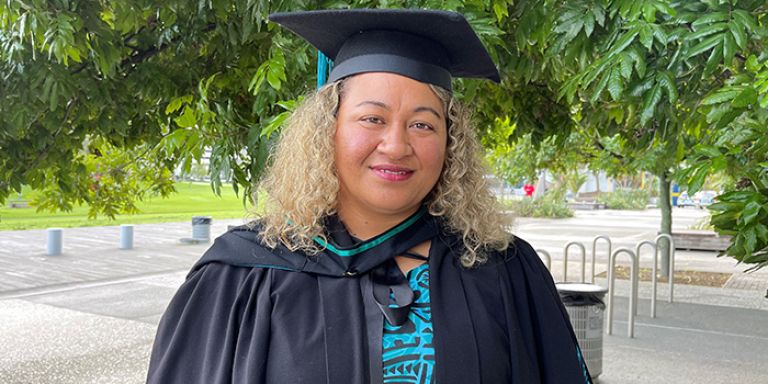
“The hours are so flexible, and it’s helpful for us mothers with children.”

“I found my experience with MIT very easy. The hours are so flexible, and it’s helpful for us mothers with children. When they’re sick, we can study from home. The lecturers are so helpful and support us to catch up with our assessments.
My favourite part of MIT is the tangata whenua. All the different people come together as a family at MIT, allowing us to still have that importance of our identity. They encourage us in learning about the tangata whenua and the history of this land. It’s important that we understand the history of the people in this land.
My advice for people is to come and study at MIT. It’s closer to home. Easy to find parking, and the bus stop is just around the corner. MIT people are very lovely, lecturers and students are all very supportive.”
Tapaita Matekuolava
MIT graduate
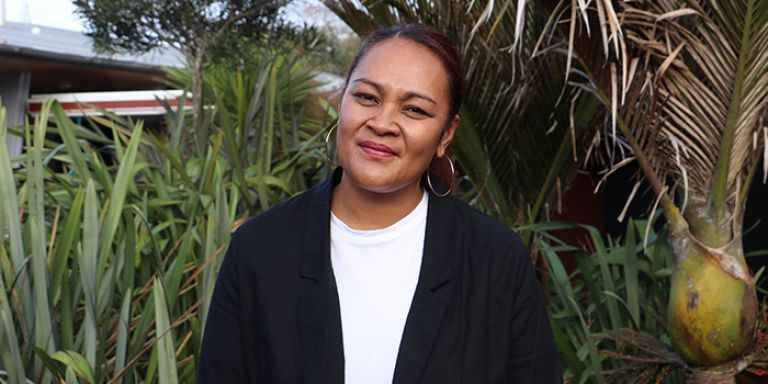
“I was able to gain employment straight away.”

“I’m working as a service manager for child and family services in Barnardos. My role is to provide supervision and clinical support for our practitioners here in South Auckland.
We also take on board student placements, particularly for MIT. We’re based in the south so our focus is being able to support our practices, who want to be able to work for our South Auckland families. Every semester we take two students.
MIT is probably one of the most diverse places to study, the commitment by cultural practices and diversity is important. What makes MIT special is the freedom that the students have to be able to locate themselves in their practice, and share that with everyone else.
Demand for practitioners is ever increasing. When I graduated from MIT, I was able to gain employment straight away.”
AK Seri
MIT graduate

“I came to a place that fit me.”

“My social worker put me on the straight and narrow, which kind of gave me options not to choose the life that I thought I wanted. I’m a school dropout. I came here and got the school cert, which I didn’t get in school. It’s not that I wasn’t good enough, it’s just that school didn’t fit. So, I came to a place that fit me. I’ve been through MIT three times. So that says a lot for this place and my journey in life. I’m still here, and I’m nearly finished.
What I enjoy most about studying at MIT is the tutors, the support our tutors actually gave us, and the camaraderie in terms of our class, our brotherhood, our sisterhood. That’s the biggest thing. You go on your own journey and you have your own goals, but you need the support. And that support usually starts with your class.”
Scott Matapakia
MIT student
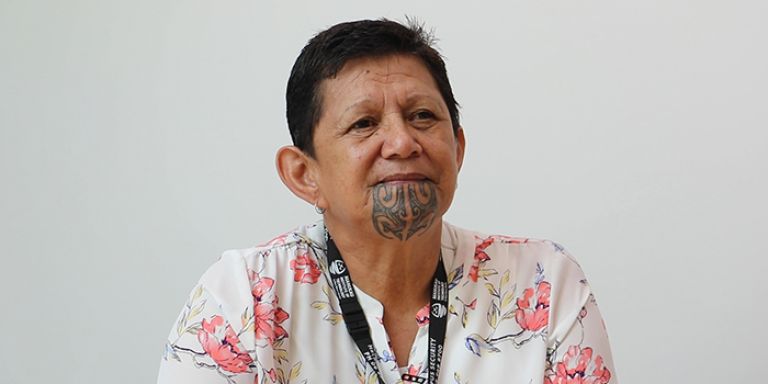
“MIT social workers are in the greatest demand.”

“There is a huge demand for social workers, and in the time that I have been at MIT, MIT social workers are in the greatest demand. They bring diversity, personal experience, and the practical skills that are fine-tuned while learning to become social workers at MIT. It is then applied when they go out into the field.
In the first two years of study, the students learn social work theory, and in the final two years, students start applying theory into practice while out on placement. I believe anyone who has a passion for people in their community can do this qualification. Even if you have no social work experience, knowledge from your surroundings will be an advantage in this space.
What I love about MIT, are the diverse cultures here. We all have one thing in common and that is to provide support to our communities. We are the best people to do it because we live and know what goes on in our community.
The opportunities for this qualification are endless. You can work with youth, Oranga Tamariki with children and Whānau, disabilities, corrections, hospital social worker, school social worker, mental health worker, and the list goes on. Most of our students come in with a narrow view of what area they want to work in, but by the time they finish the degree, their lens is widened for their chosen field they want to work in. Our job as lecturers is, to create a pathway to their chosen area of expertise. I like to call them ‘diamonds in the rough’ our job is to take off rough edges and shine them up.
What is also important to note is that MIT social work students are employed by organisations for the cultural content they take into organisations and out into the field because our statistics for the most disadvantaged in Aotearoa, New Zealand are Māori and Pasifika.”
Lois Naera
MIT lecturer
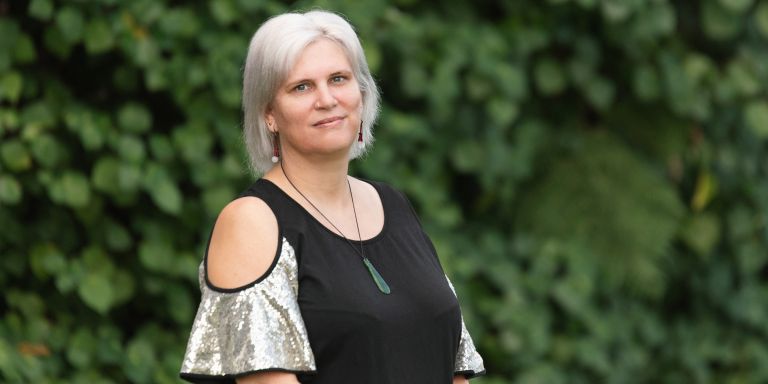
“No matter what stage of life you’re in, MIT is for everyone.”

“I chose to study social work so I can help other people when they are going through a rough period in their life and MIT has a great reputation in the field. Studying after such a long time was challenging, however there is so much support to help.
The teachers are super helpful, the students are always willing to help you learn and be a better version of yourself. Don’t wait to take that step, you will not regret your decision. No matter what stage of life you’re in, MIT is for everyone.”
Sarah Cornwell
MIT student

“At MIT people are friendly and the facilities are really useful, there’s everything on campus.”

“I chose MIT because it’s close to me. I live in Otara and if I can’t get a car, I can walk to the campus. Also, English is my second language and my Tongan lecturer really helped me by translating the work.
At MIT people are friendly and the facilities are really useful, there’s everything on campus.
My favourite part of my course was the presentations. I love talking and even though English is my second language I was able to do my best.
I’m 55 and I would advise for those in my age, that it’s not too late to learn. You can go to lecturers, and they will help you. Learning is good for you, good for your family, and good for the culture.”
Apifoon Pelikani
MIT graduate
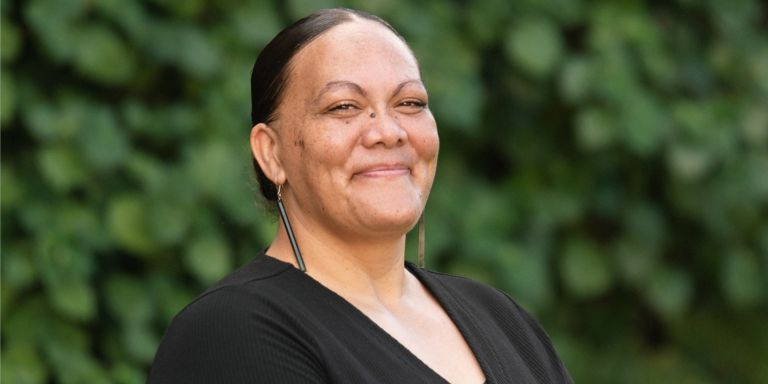
“The people of MIT are what makes this place unique”

“I have always loved people and finding out what they love about being who they are. My Aunty was an amazing Social Worker, and she had a unique way of working alongside whānau and so many people loved her. I studied this programme because I wanted to have a better understanding of myself to help me become a better parent and person so that I could better advocate for others.
I am a proud South Aucklander who was raised in Ōtara as a child so I used to see MIT South Campus all the time and thought how cool it would be to study there one day. I needed to study close to home and close to my children in case they needed me at short notice. I also did a bit of research about the programme compared to other providers and MIT had me sold.
Motivation has been the hardest thing to battle through my studies, but once you know your reasons for being here, your why, you can push through to the end. I have a very busy lifestyle that some may think is over the top. I manage by ensuring I am surrounded by amazing, positive people who celebrate each other’s successes and encourage you to keep going. I celebrate myself when I know I have done well because we forget about ourselves often. You can still be humble and celebrate your achievements.
MIT is so diverse and I have learned so much about the different tikanga each culture values, which I believe is a great way to create those respectful relationships. Maybe I am biased when it comes to MIT. The people who have studied at MIT over the past 52 years have all contributed professionally or personally with heart and grace to our communities around Tāmaki Makaurau and the world. The people of MIT are what makes this place unique.”.
Casey Makiri
MIT student

“It doesn’t matter how old or young you are, you can always learn something new.”

“I chose to study social work because after being in hospitality and retail, for 30yrs I could see the need for more help in our communities and have always wanted to help out in our community where I could make a difference.
Because I had not studied for a long time and my schooling was not the best, I liked the sound of how much support you get from the MIT tutors and staff. During my studies my grammar and spelling skills due to my dyslexia have been a challenge, but with the support of tutors and classmates I have had advice and heaps of support.
I have enjoyed the most, the great support with my studies from the tutors and meeting so many different age groups and cultures that are learning, being encouraged from your classmates to get the assignments done.
Don’t be afraid of the unknown and if you have life experiences then use them and don’t worry how old you are to learn something new. It doesn’t matter how old or young you are, you can always learn something new.”
Richard Kealey
MIT student
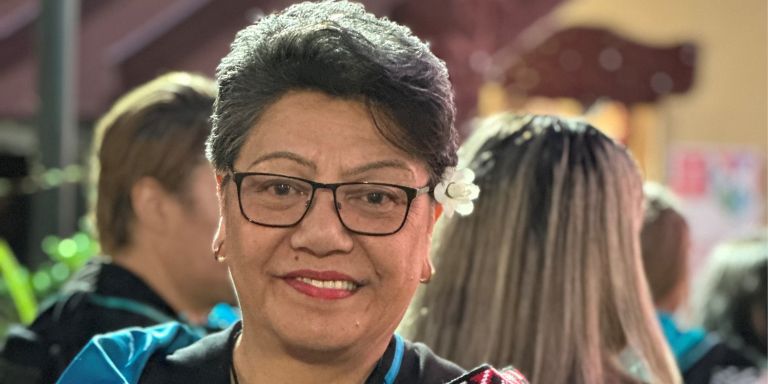
“MIT is the best tertiary institution in New Zealand.”

“Before studying I was a financial planner. I wanted to be a social worker because we need more social workers in New Zealand. I chose to study at MIT because I wanted a positive outcome, and it was close to home.
MIT is like whānau. The librarians and lecturers are amazingly helpful. There is lots of one-on-one and wrap-around support, study groups and online groups to help you succeed. It’s full of diverse cultures and everyone is very understanding.
MIT is the best tertiary institution in New Zealand.”
Aere Anne Nicholas
MIT graduate
See why more people choose Social Work at MIT

MIT is the quality choice. Study social work and graduate work-ready.

“Social work is suitable for people who have a passion to help people.”

“The social work degree programme is suitable for people who have a passion to help people. It doesn’t really matter what your background is, it doesn’t matter what experiences you have had. It’s about whether you are committed to helping your community and families. Your experience and your backgrounds – they do not define your future. As long as you are committed, and you have the passion then the degree is for you.
In social work, we focus on people, and we focus on relationships. So, we often have events and activities, and we mix year one, year two, year three and year four, in together.
As a social worker, we have to be prepared that the day will be busy. Often, we can’t really go with what we planned for, and we have to be very adaptable, and accept changes.
After our students finish the degree, they can work in any government agency, hospitals, schools, and non-governmental organisations (NGOs) or pursue further studies.
Study social work at MIT.”
Melanie Wong
MIT senior lecturer

“It’s very practical at MIT and that’s what I love about it.”

“It’s very practical at MIT and that’s what I love about it. Learning is very engaging because we’re always very involved, it was very hands-on. What’s being taught to you is exactly what you need when you go out into the world when you get that job.
From the beginning, you’re in a position to get to know a lot of interesting people and form relationships with not only the students but with the lecturers.
I wanted to actually do something, not just be in an office. Now I can do something good for the community, helping people make the most of their lives. Helping them help themselves I love that.
My advice is don’t be afraid, just do it.”
Liam Dades
MIT graduate

“Make a change to someone else’s life.”

“I chose social work as kids in my family were placed in my care by Oranga Tamariki so that encouraged me to step up, make a change to someone else’s life. My learning at MIT is absolutely fantastic, it’s giving me tools to go out and find the job. In my student journey, I’ve enjoyed everything, assessment after assessment.
I enjoy being together with other students, also the learning support centre helps us so much, especially when it comes to assessments. I get help and any kind of support that I need from MIT.
My advice to someone considering social work is if you want to do it, just go for it. It’s very challenging but those challenges make you want to keep on going. For me, I don’t want it to end, I want to keep on going. I really enjoy it. I would like to say I have enjoyed every single thing on my journey at MIT.”
Ana Tovo Mafilao
MIT student

“If I don’t do it now, I’ll never do it.”

“I’ve always had the heart to make a difference in the community. I am a returning learner, which was a challenge I overcame before I started studying this degree. Having to be back in student life, and having no money, but it’s like, if I don’t do it now, I’ll never do it.
I quite enjoy the fact that MIT has an online study education option and the opportunity to come on campus. Everyone is really down to earth. The lecturers really want to get to know you and help you out on your journey at MIT. What I enjoyed in my student journey is the fact that it’s closer to home for me and the environment. It’s a very diverse institute.”
Peter Lafo
MIT student

“I’ll be the first one to get a degree in my family.”

“I want to make my family proud of me because I’ll be the first one to get a degree in my family. I chose this subject because in my culture I saw children being abused.
I had my own children, so I wanted to help my own, especially in my community. I’ve been the class rep for year 3 and I’m the first Island student to be class rep for our class.
Being with different cultures has made me proud of my culture. When I see MIT, it’s not only one culture but different cultures – but we’re all like one family.”
Miliano Peti
MIT student

“You’re never too old, you won’t regret it. You’ll enjoy studying with MIT.”

“I chose social work because I want to contribute to my community. I would really like to help families out of struggling situations that they may be in.
At MIT everything they teach us is really hands-on. We learn how to apply the theory and the practice within a real-life environment when we go out and do community work. It’s also a friendly environment. They treat everybody as equal, you’re not judged in any way. They just really, really make you feel like you’re somebody.
My advice is to go for it. You don’t want to get to an age when you’re looking back thinking I should have just done it when I was younger. Just go ahead and do it. You’re never too old. You won’t regret it, you’ll enjoy studying at MIT. We’re studying with diverse people from different ethnic backgrounds. They have quite a diverse culture here at MIT. You meet people from all different backgrounds. You’re able to develop different perspectives and I think that’s really important when you go out into the real world.”
Lisa Ratahi
MIT student

“I enjoyed every moment at MIT being able to work with different cultures.”

“I enjoyed every moment at MIT being able to work with different cultures.
It’s a huge learning experience. I encourage others to join MIT, they not only help you with your study but also help you to find a job after.”
Meliame Opeti Fifita
MIT graduate

“MIT brought me out of my comfort zone.”

“I chose social work because I want to give back within our community and help the youth, the children, the tamariki. What I have enjoyed most about being at MIT is the environment. I didn’t have any confidence but coming to MIT brought me out of my comfort zone. My dream job would be working with children in a hospital.”
Marie Hilikehetute
MIT student

“Hands-on learning has improved my growth and development as a person.”

“I chose social work because I want to see positive changes within our communities and our Pasifika youth. What I enjoy most is MIT is local. We literally only live a couple of roads down.
MIT’s hands-on learning has improved my overall growth and development as a person because I learn better hands-on, I don’t learn from a book. The environment itself has a huge impact on our learning, just seeing it every day is what motivates us to actually do better for ourselves and our family.”
Sheridan Tohiniu
MIT student

“For me, the goal was to have a career and not a job.”

“The uniqueness of MIT is being diverse, it is not just one culture, we learn from other people, and we learn from ourselves. What I enjoyed most was finding and creating good friendships. I love how the teachers are as well.
Being a teen Mum, you don’t know what you want to do, and sometimes being a benefit statistic hurts. For me, the goal was to have a career and not a job. I came into social work to get that career. I’m in my dream job now because of social work. I am working at an education centre, working with young mums and helping with their social needs like getting them houses, getting them on the benefit if they need a benefit, and helping where I can.
Don’t think about it. Just do it. Honestly, you won’t regret it.”
Davinia Waite
MIT student

“My lecturers have helped and motivated me to complete my degree.”

“I’ve always wanted to work in the areas of social justice, diversity and human rights.
I highly recommend Manukau Institute of Technology to anyone who wants to begin their social work journey. You will experience social work theory, proficiency and skills, and you get the opportunity to go out into placement.
My lecturers are open, honest and transparent, and they have helped and motivated me to complete my degree. We are like one big family.
Everything about MIT is unique; the people, the friendliness, the helpfulness, I can’t say enough about the Institute. They’ve bent over backwards to help me, and I’ve watched them help other students too. I highly recommend you come and study here.
Come and do the social work degree, you won’t regret it. This will actually be the kind of job where you will love getting up in the morning to come to work.”
Melanie Peakman
MIT student

“There are some journeys we need to walk on our own, but it is only to contribute to a bigger and wider picture.”

“Before studying the Bachelor of Applied Social Work, I was working full-time as a chef after completing my level 5 diploma in cookery at MIT.
I chose social work at MIT to help others to help themselves and to further my skills in dealing with relationships and learning more about Te Ao Māori. When I started the degree, my heart was for at-risk youth and now it’s to see and build thriving communities.
MIT is very diverse and has a lot of respect for other cultures. We all came from different backgrounds, learning the same thing to help us understand each other better.
It’s also unique through the fact that the lecturers are very supportive, and we had that relationship throughout the 4 years of study. Also, the level of connection between the kaiako and the tauira made the studies a lot easier knowing that they were there to help.
Covid-19 was the biggest challenge I had to face during my time of study. Being isolated and away from people face-to-face was a hard bullet to bite. Support and constant communication from lecturers and always being updated on any matters that were important, especially during the pandemic, helped me to succeed.
No one in my family has a bachelor’s degree, so being the first to complete one is a massive achievement. My qualification has helped me to get recognised and registered so that I can carry on with my mahi as a social worker.
My advice to anyone wanting to study social work at MIT is ‘he waka eke noa’ – we are all in this canoe together. Those you start with, are those you finish with. But no matter the journey people will fall off the waka. You must embrace their decisions and support them as they take on a new journey whilst you carry on your own journey.”
Bonny Alaia
MIT graduate

“The hours are so flexible, and it’s helpful for us mothers with children.”

“I found my experience with MIT very easy. The hours are so flexible, and it’s helpful for us mothers with children. When they’re sick, we can study from home. The lecturers are so helpful and support us to catch up with our assessments.
My favourite part of MIT is the tangata whenua. All the different people come together as a family at MIT, allowing us to still have that importance of our identity. They encourage us in learning about the tangata whenua and the history of this land. It’s important that we understand the history of the people in this land.
My advice for people is to come and study at MIT. It’s closer to home. Easy to find parking, and the bus stop is just around the corner. MIT people are very lovely, lecturers and students are all very supportive.”
Tapaita Matekuolava
MIT graduate

“I was able to gain employment straight away.”

“I’m working as a service manager for child and family services in Barnardos. My role is to provide supervision and clinical support for our practitioners here in South Auckland.
We also take on board student placements, particularly for MIT. We’re based in the south so our focus is being able to support our practices, who want to be able to work for our South Auckland families. Every semester we take two students.
MIT is probably one of the most diverse places to study, the commitment by cultural practices and diversity is important. What makes MIT special is the freedom that the students have to be able to locate themselves in their practice, and share that with everyone else.
Demand for practitioners is ever increasing. When I graduated from MIT, I was able to gain employment straight away.”
AK Seri
MIT graduate

“I came to a place that fit me.”

“My social worker put me on the straight and narrow, which kind of gave me options not to choose the life that I thought I wanted. I’m a school dropout. I came here and got the school cert, which I didn’t get in school. It’s not that I wasn’t good enough, it’s just that school didn’t fit. So, I came to a place that fit me. I’ve been through MIT three times. So that says a lot for this place and my journey in life. I’m still here, and I’m nearly finished.
What I enjoy most about studying at MIT is the tutors, the support our tutors actually gave us, and the camaraderie in terms of our class, our brotherhood, our sisterhood. That’s the biggest thing. You go on your own journey and you have your own goals, but you need the support. And that support usually starts with your class.”
Scott Matapakia
MIT student

“MIT social workers are in the greatest demand.”

“There is a huge demand for social workers, and in the time that I have been at MIT, MIT social workers are in the greatest demand. They bring diversity, personal experience, and the practical skills that are fine-tuned while learning to become social workers at MIT. It is then applied when they go out into the field.
In the first two years of study, the students learn social work theory, and in the final two years, students start applying theory into practice while out on placement. I believe anyone who has a passion for people in their community can do this qualification. Even if you have no social work experience, knowledge from your surroundings will be an advantage in this space.
What I love about MIT, are the diverse cultures here. We all have one thing in common and that is to provide support to our communities. We are the best people to do it because we live and know what goes on in our community.
The opportunities for this qualification are endless. You can work with youth, Oranga Tamariki with children and Whānau, disabilities, corrections, hospital social worker, school social worker, mental health worker, and the list goes on. Most of our students come in with a narrow view of what area they want to work in, but by the time they finish the degree, their lens is widened for their chosen field they want to work in. Our job as lecturers is, to create a pathway to their chosen area of expertise. I like to call them ‘diamonds in the rough’ our job is to take off rough edges and shine them up.
What is also important to note is that MIT social work students are employed by organisations for the cultural content they take into organisations and out into the field because our statistics for the most disadvantaged in Aotearoa, New Zealand are Māori and Pasifika.”
Lois Naera
MIT lecturer

“No matter what stage of life you’re in, MIT is for everyone.”

“I chose to study social work so I can help other people when they are going through a rough period in their life and MIT has a great reputation in the field. Studying after such a long time was challenging, however there is so much support to help.
The teachers are super helpful, the students are always willing to help you learn and be a better version of yourself. Don’t wait to take that step, you will not regret your decision. No matter what stage of life you’re in, MIT is for everyone.”
Sarah Cornwell
MIT student

“At MIT people are friendly and the facilities are really useful, there’s everything on campus.”

“I chose MIT because it’s close to me. I live in Otara and if I can’t get a car, I can walk to the campus. Also, English is my second language and my Tongan lecturer really helped me by translating the work.
At MIT people are friendly and the facilities are really useful, there’s everything on campus.
My favourite part of my course was the presentations. I love talking and even though English is my second language I was able to do my best.
I’m 55 and I would advise for those in my age, that it’s not too late to learn. You can go to lecturers, and they will help you. Learning is good for you, good for your family, and good for the culture.”
Apifoon Pelikani
MIT graduate

“The people of MIT are what makes this place unique”

“I have always loved people and finding out what they love about being who they are. My Aunty was an amazing Social Worker, and she had a unique way of working alongside whānau and so many people loved her. I studied this programme because I wanted to have a better understanding of myself to help me become a better parent and person so that I could better advocate for others.
I am a proud South Aucklander who was raised in Ōtara as a child so I used to see MIT South Campus all the time and thought how cool it would be to study there one day. I needed to study close to home and close to my children in case they needed me at short notice. I also did a bit of research about the programme compared to other providers and MIT had me sold.
Motivation has been the hardest thing to battle through my studies, but once you know your reasons for being here, your why, you can push through to the end. I have a very busy lifestyle that some may think is over the top. I manage by ensuring I am surrounded by amazing, positive people who celebrate each other’s successes and encourage you to keep going. I celebrate myself when I know I have done well because we forget about ourselves often. You can still be humble and celebrate your achievements.
MIT is so diverse and I have learned so much about the different tikanga each culture values, which I believe is a great way to create those respectful relationships. Maybe I am biased when it comes to MIT. The people who have studied at MIT over the past 52 years have all contributed professionally or personally with heart and grace to our communities around Tāmaki Makaurau and the world. The people of MIT are what makes this place unique.”.
Casey Makiri
MIT student

“It doesn’t matter how old or young you are, you can always learn something new.”

“I chose to study social work because after being in hospitality and retail, for 30yrs I could see the need for more help in our communities and have always wanted to help out in our community where I could make a difference.
Because I had not studied for a long time and my schooling was not the best, I liked the sound of how much support you get from the MIT tutors and staff. During my studies my grammar and spelling skills due to my dyslexia have been a challenge, but with the support of tutors and classmates I have had advice and heaps of support.
I have enjoyed the most, the great support with my studies from the tutors and meeting so many different age groups and cultures that are learning, being encouraged from your classmates to get the assignments done.
Don’t be afraid of the unknown and if you have life experiences then use them and don’t worry how old you are to learn something new. It doesn’t matter how old or young you are, you can always learn something new.”
Richard Kealey
MIT student

“MIT is the best tertiary institution in New Zealand.”

“Before studying I was a financial planner. I wanted to be a social worker because we need more social workers in New Zealand. I chose to study at MIT because I wanted a positive outcome, and it was close to home.
MIT is like whānau. The librarians and lecturers are amazingly helpful. There is lots of one-on-one and wrap-around support, study groups and online groups to help you succeed. It’s full of diverse cultures and everyone is very understanding.
MIT is the best tertiary institution in New Zealand.”
Aere Anne Nicholas
MIT graduate








